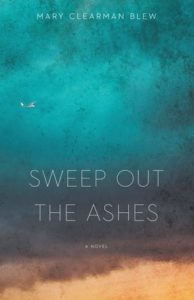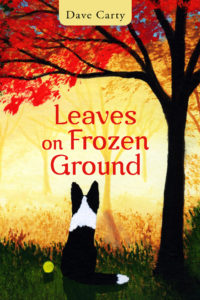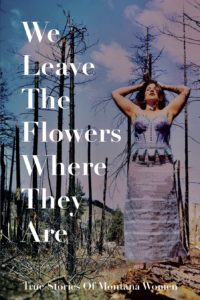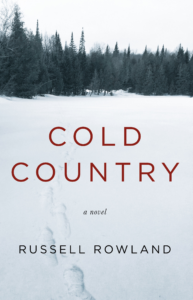Isolation in the age of COVID-19: What better time to catch up on novels by well-known writers Mary Clearman Blew and Russell Rowland and a debut by Gallatin Valley’s Dave Carty, or relish a collection of stories by a wide swath of Montana women in the collection, We Leave the Flowers Where They Are? And, with independent bookstores hurting, why not stock your shelf from a Montana bookstore?
Sweep Out the Ashes

Acclaimed Montana-born author Mary Clearman Blew heads back to the High Plains for her latest novel.
Young feminist and historian Diana Karnov arrives in Versailles, Montana, to teach college history and unravel family secrets. The community is remote, “cut off by distance and weather from anywhere ideas were being discusses and issues argued.” The all-male faculty appears to be more appreciative of her looks than her intellect, and her clothes and car prove inadequate to the brutal winter weather.
But she’s escaped the overbearing great aunts who raised her in Seattle, and diligently begins combing through newspapers at the local library, hoping to discover the identity of the father she never know.
A few locals befriend her, including a student, Cheryl Le Tellier, and her brother, Jake, both descended from Métis. From them, she begins to see how narrow her sense of history is, especially when it comes to the American West. As her relationship with Jake deepens, she also circles ever closer to her father’s true identity – all the while coming to respect, and even appreciate the frigid, austere landscape that surrounds her. Along the way, the young historian begins to realize that our common history is a tapestry of multiple narratives.
Blew – a native of northern Montana – crafts an engrossing romantic mystery set in a community that’s curiously isolated from the turbulent 1970s. Author Joy Passanante calls it “Smart, witty, hard-hitting, tender, and compelling … a damn good read.”
Blew, the author or editor of numerous fiction and nonfiction books, is professor emerita of English at the University of Idaho.
– Kristi Niemeyer
Leaves on Frozen Ground

Dave Carty sets his first novel in Port Landing, WI, on the south shore of Lake Superior, with winter settling in. The Vaillancourts, Gaston and Celine, own a successful construction company and a small farm, where Gaston lovingly tends to an orchard of prized apples.
But when the economy goes south, the Vaillancourts and their 11-year-old son, Edmund, are thrust into a painful rearranging of love and loyalty that changes their family in profound and unforeseen ways.
Edmund is his father’s son, stubborn and willful. His dog and the wild country beyond their orchard own his heart. But when December comes, and cold descends, neither dog nor boy is paying attention.
Caught in a crucible of events they cannot control, the family is forced to make choices, the impact of which is never clear.
“Insightful throughout, at times profound, Leaves on Frozen Ground is the work of a fine writer and keen observer of the human condition,” says Mike England in Outside Bozeman.
And Midwest Book Review praises Carty’s debut novel as “a complex, heart-wrenching, deftly scripted page turner …”
Carty is a 34-year resident of the Gallatin Valley and has spent nearly half his life as a professional writer, with over 1,000 published magazine articles in a variety of national publications.
We Leave the Flowers Where They Are

“We tell ourselves stories in order to live.” The wisdom of author Joan Didion blossomed across Montana last fall, with 41 contemporary Montana women telling their stories in a new collection.
Longtime memoir instructor and novelist Richard Fifield of Missoula curated the anthology, We Leave The Flowers Where They Are, named after a line in the single poem included in the book. “Storytelling has been part of the human race for centuries,” says Fifield. “Writing a memoir, telling your own story, changes everything.”
The anthology is a diverse collection, with women across Montana, from Powder River to Eureka, sharing stories of joy, pain, humor and hope.
“Working with other writers has made my life richer and wider,” says Missoula author Gladys Considine, 78, who has been in Fifield’s memoir critique group for five years. “Regardless of our ages, whether we grew up in Butte or Broadus, Billings or Troy, or whatever we do at work every day, we all have stories worth telling and sharing. Though we women live in similar times, each story I read broadens my outlook on life and gives me more understanding and a further acceptance of differences.”
A portion of the book’s proceeds benefits two nonprofit organizations – Zootown Arts Community Center (ZACC) and Humanities Montana. For more information visit www.mtstories.com.
Cold Country

The small town of Paradise Valley is ripped apart when popular rancher and notorious bachelor Tom Butcher is found murdered one morning, beaten to death by a baseball bat. Suspicion among the tight-knit community immediately falls on the outsider, Carl Logan, who recently moved in with his family and his troubled son Roger.
What Carl doesn’t realize is that there are plenty of people in Paradise Valley who have reason to kill Tom Butcher.
Complications arise when the investigating officers discover that Tom Butcher had a secret – one that he kept even from Junior Kirby, a lifelong rancher and Butcher’s best friend. As accusations fly and secrets are revealed, the people of Paradise Valley learn how deeply Tom Butcher was embedded in their lives, and discover that they may not have known him at all.
Kirkus Review calls Russell Rowland’s latest novel “a quick-moving, plainspoken, mostly charming exploration of the hardscrabble life of the livestock rancher of old.”
The Billings author has written five novels, including In Open Spaces and Arbuckle, as well as the critically acclaimed nonfiction collection, Fifty-Six Counties, about his travels to every county in Montana. He also hosts a radio show, also called “Fifty-Six Counties,” on Yellowstone Public Radio.